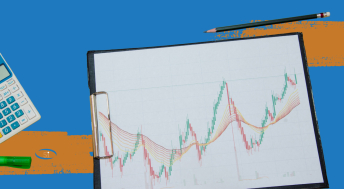"These should apply in both Bear Markets and Bull Markets to get your brain in shape for the upcoming investment year"
I hate to break it to you, especially to any kids reading this, but school starts this week. Investors shouldn’t really take the summer off, but many do, so consider this a refresher course in five basic investment principles that should apply in both bear market and bull markets to get your brain in shape for the upcoming school/investment year. Pay attention, class. There won’t be an exam, but losing thousands of dollars because you forgot the basics can be just as disheartening as getting a D on a test.
Debt Can Kill a Company
Endo International PLC filed for bankruptcy protection this week. This is the company that took over Canada’s Paladin Labs Inc. about a decade ago. Endo shares are down 91 per cent this year. The problem? Very high debt. Endo has US$8 billion in debt after a large acquisition spree. Cash flow in the past 12 months? Just US$80 million. It paid US$560 million in interest charges in the past 12 months.
Cineworld Group PLC this week said it was “considering” bankruptcy. The stock is down 95 per cent in the past year. This company tried to take over Cineplex Inc. in 2020, with about the worst timing a company could have (just prior to the COVID-19 shutdown). It had about US$8.9 billion in debt at the end of fiscal 2021 including lease liabilities, more than 27x its 12-month cash flow. Bausch Health Cos. Inc., once Canada’s largest company, this week retained advisers to help “map out its future.” Its stock is down 81 per cent this year. It has US$22 billion in debt, and cash flow of less than US$700 million.
The lesson here: Debt can kill a company, sometimes quickly. Make sure the companies you own can service their debt. Times are not always great, and a company must be able to survive before it can prosper.
Dividends Rule
We discussed in a prior column how many companies are increasing their dividends, even with a possible recession ahead. That’s great, but even better is that dividends provide a big part of an investor’s return over time. The amount can vary depending on who is doing the academic study and the timeframe chosen, but BlackRock Inc.’s global equity team not that long-ago suggested 90 per cent of equity returns in the United States over the past century have been a result of dividends and dividend growth. We do not think it is that high, and S&P Global Inc. claims it is around 30 per cent.
Regardless, dividends certainly help investors grow their portfolios. What’s more, a dividend helps you keep your stocks during rough market periods. Of course, the longer you hold an investment, the greater its potential compounding impact on your portfolio. The lesson: Own some dividend stocks.
Time vs. Timing
Our clients always ask: “Is this a good time to get into the market?” We — almost always — say yes. Equities have provided substantial long-term returns over time, even if you buy just prior to a crash or a market correction.
No one knows if the market is going to crash tomorrow, or soar. You can guess, trade, pay taxes, go to cash, borrow money to buy, buy technical trading software and so on, and none of it is going to improve your market predictive ability. Just invest what you can when you can and see the benefits over time. The lesson: stay in school (stay invested).
Share Takeovers Can Backfire
Yamana Gold Inc. recently agreed to an all-share takeover by Gold Fields Ltd. The transaction calls for each Yamana share to be exchanged for 0.6 shares of Gold Fields. But Gold Fields’ shares were US$12.20 ($15.86) each the day before the announcement, and are now US$8.75 ($11.38). Because the takeover compensation is in shares, Yamana shares, even with an announced takeover premium of 37 per cent, have fallen to $6.21 from $7.03. I would get pretty depressed if I owned shares in a company that received a takeover bid, and my shares fell 13 per cent. Of course, things could have gone the other way, but the lesson here is that in a share-exchange takeover, you are still at the mercy of the stock market. Share-exchange deals happen all the time, and don’t require debt, but they can still be risky for shareholders in the target companies. A secondary lesson: Cash does not drop in value.
Permanent Losses Versus Temporary Losses
A loss is the difference between what you paid for an investment and what it is worth today if it dropped (usually evidenced by a market price). Permanent losses are those that have been fully realized through sale, liquidation or termination (bankruptcy). Such losses are not coming back. Market prices can go above intrinsic value when investors are bullish and greedy, and can plummet when investors are scared and fearful. But the intrinsic value of a company doesn’t change nearly as much as the market price. The job of the intelligent investor is to avoid permanent losses and to accept temporary paper losses. Most investments are subject to the prospect of permanent loss, but the key is to get paid for that risk by the prospects of much higher returns.
This year, you no doubt have lots of paper losses, with all major markets down on the year. But is this always going to be the case? (Answer: no). If you sell now, all you have done is crystalize a permanent loss. Every situation is different, of course, but the lesson here is to determine what’s happening with your investment. Is your investment bad, or is the market bad? Knowing the difference will be key in whether you should accept a permanent loss or not.
Take Care,







Comments
Login to post a comment.